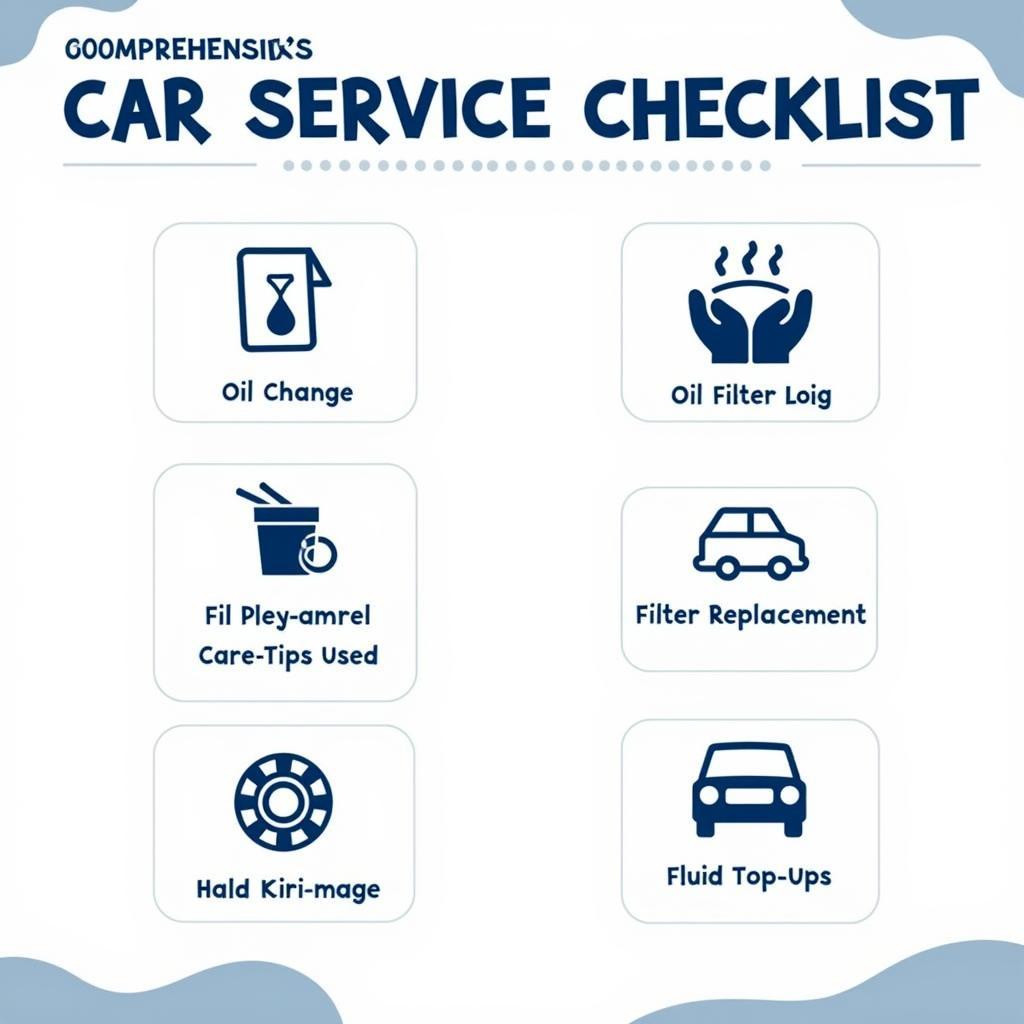How Often Do You Service a Diesel Car?
Maintaining your diesel engine is crucial for its performance, longevity, and fuel efficiency. But How Often Do You Service A Diesel Car? Unlike their gasoline counterparts, diesel cars often operate under higher compression ratios and utilize different fuel and lubrication systems. This translates to unique maintenance needs and service intervals. While there is no one-size-fits-all answer, understanding the factors influencing your diesel car’s service schedule can save you costly repairs and headaches down the road.
Factors Influencing Diesel Car Service Intervals
Several factors contribute to how often you should service your diesel car:
- Driving Conditions: Frequent short trips, heavy loads, dusty environments, and extreme temperatures can accelerate wear and tear, requiring more frequent servicing.
- Driving Style: Aggressive driving habits, such as rapid acceleration and harsh braking, put additional strain on engine components, necessitating more regular maintenance.
- Vehicle Age and Mileage: Older vehicles and those with higher mileage often require more frequent servicing due to accumulated wear and tear.
- Manufacturer Recommendations: Always consult your car’s owner’s manual for manufacturer-recommended service intervals, as they can vary significantly between makes and models.
General Diesel Car Service Schedule
While specific recommendations can vary, here’s a general guideline for diesel car service intervals:
Every 3,000-5,000 miles or 3-6 Months:
- Oil Change: Diesel engines produce more soot than gasoline engines, making regular oil changes critical. Use the grade and type of oil specified in your owner’s manual.
- Oil Filter Replacement: The oil filter traps contaminants, ensuring optimal engine lubrication. Replacing it with every oil change is crucial.
- Visual Inspection: Check fluid levels (coolant, brake fluid, power steering fluid), belts, hoses, and tire pressure.
Every 10,000-15,000 miles:
- Fuel Filter Replacement: Diesel fuel often contains more contaminants than gasoline. Replacing the fuel filter prevents these contaminants from damaging the engine.
- Air Filter Replacement: A clean air filter ensures efficient air intake, optimizing combustion and engine performance.
Every 30,000-60,000 miles:
- Coolant Flush: Over time, coolant can become acidic and lose its effectiveness. Flushing the system and replacing the coolant prevents corrosion and overheating.
- Brake Fluid Flush: Brake fluid is hygroscopic, meaning it absorbs moisture over time. Flushing the system ensures optimal braking performance and prevents corrosion.
- Transmission Fluid Flush: (For automatic transmissions) Diesel engines generate more torque, putting additional strain on the transmission. Regular fluid changes ensure smooth shifting and prevent premature wear.
Every 60,000-90,000 miles:
- Timing Belt/Chain Inspection/Replacement: The timing belt or chain ensures the synchronization of engine components. Inspection and timely replacement prevent catastrophic engine damage.
Other Important Services:
- Glow Plug Check: Especially crucial in cold climates, glow plugs preheat the combustion chamber for efficient cold starts.
- Diesel Particulate Filter (DPF) Regeneration: Modern diesel cars often have a DPF to trap soot. The regeneration process burns off accumulated soot, preventing clogging.
- Fuel Injector Cleaning: Clogged fuel injectors can disrupt fuel atomization, leading to reduced performance and increased emissions.
“Regular maintenance is the key to maximizing your diesel engine’s lifespan and avoiding costly repairs,” says John Smith, Senior Diesel Mechanic at XYZ Auto. “Following the manufacturer’s service schedule and addressing any issues promptly can save you a lot of trouble down the line.”
Signs Your Diesel Car Needs Servicing
Pay attention to these warning signs:
- Unusual Noises: Excessive engine noise, knocking, or rattling could indicate a problem requiring immediate attention.
- Warning Lights: Check engine light, DPF light, or other warning lights on the dashboard could signal an issue needing professional diagnosis.
- Performance Issues: Reduced power, difficulty starting, rough idling, or excessive smoke from the exhaust might indicate a need for servicing.
- Fluid Leaks: Any leaks under your car should be investigated and addressed promptly.
Conclusion
While the question “How often do you service a diesel car?” doesn’t have a single answer, understanding the factors influencing service intervals and following a general schedule can keep your diesel engine running smoothly for years to come. Remember to consult your car’s owner’s manual for specific recommendations and always address any warning signs promptly to avoid costly repairs.
FAQ
Q: Is it more expensive to service a diesel car?
A: Diesel car servicing can be slightly more expensive due to specialized fluids and filters. However, diesel engines generally require less frequent servicing, potentially offsetting the costs.
Q: Can I service my diesel car myself?
A: While some routine maintenance tasks can be performed at home, it’s generally recommended to have your diesel car serviced by a qualified mechanic, especially for more complex procedures.
Q: What happens if I don’t service my diesel car regularly?
A: Neglecting regular servicing can lead to reduced performance, decreased fuel efficiency, increased emissions, and potentially costly repairs in the long run.
Q: How can I check my diesel car’s service history?
A: You can usually find service records in the car’s glove box, with the previous owner, or by contacting authorized dealerships.
Need More Help?
For more information about diesel car maintenance, check out these resources:
- How often do you need to service a diesel car?
- Is it cheaper to service an electric car?
- How to service your car at 100 000 miles
Still, have questions about how often should you service your diesel car? Don’t hesitate to contact our team of experts via WhatsApp: +1(641)206-8880 or Email: [email protected]. We’re available 24/7 to assist you.

